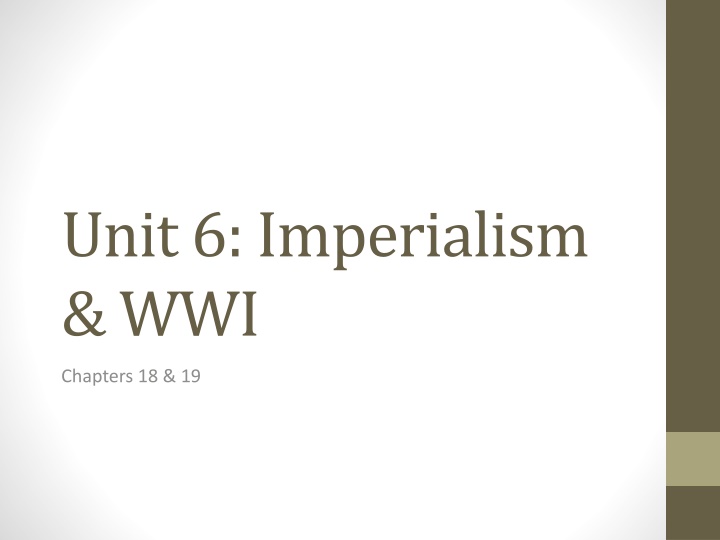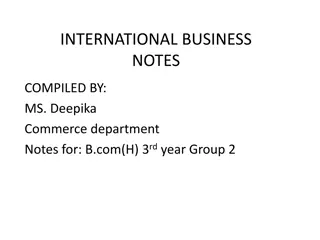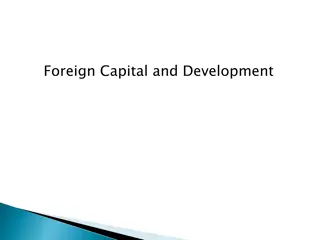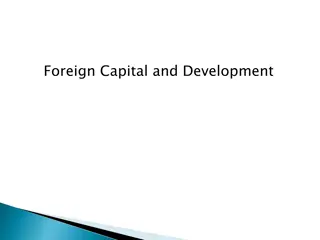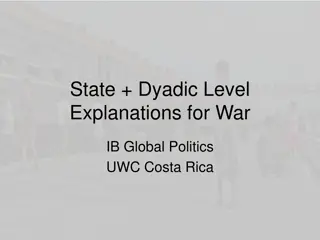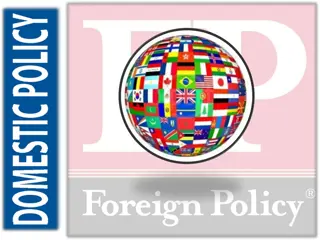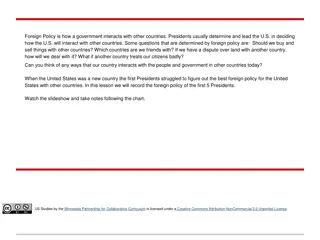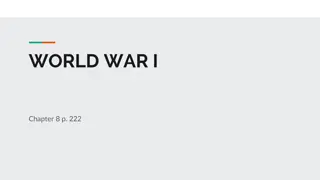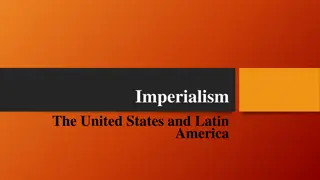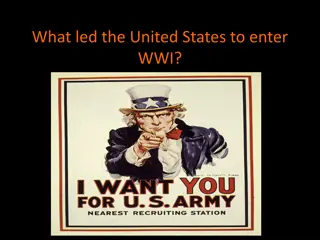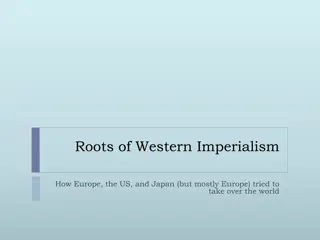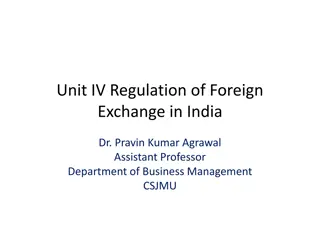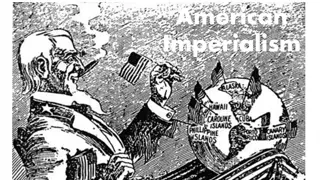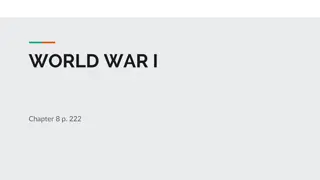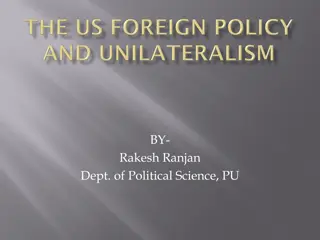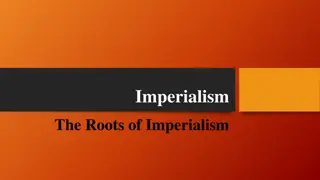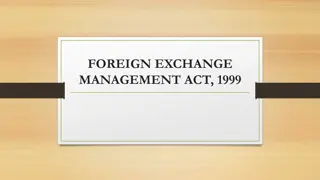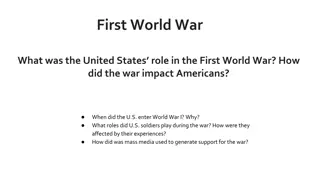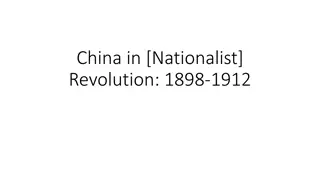United States Foreign Policy Evolution from Imperialism to World War I
Explore the United States' foreign policy evolution from Imperialism to World War I, including the Open Door Policy, Dollar Diplomacy, and involvement in the Spanish-American War. Learn about the military actions in acquiring territories such as Puerto Rico, Guam, Philippines, and Hawaii. Delve into the reasons for and outcomes of US involvement in WWI, the effects of the war on US domestic policies, President Wilson's Fourteen Points, and the Treaty of Versailles.
Download Presentation

Please find below an Image/Link to download the presentation.
The content on the website is provided AS IS for your information and personal use only. It may not be sold, licensed, or shared on other websites without obtaining consent from the author.If you encounter any issues during the download, it is possible that the publisher has removed the file from their server.
You are allowed to download the files provided on this website for personal or commercial use, subject to the condition that they are used lawfully. All files are the property of their respective owners.
The content on the website is provided AS IS for your information and personal use only. It may not be sold, licensed, or shared on other websites without obtaining consent from the author.
E N D
Presentation Transcript
Unit 6: Imperialism & WWI Chapters 18 & 19
I. Foreign Expansion Diplomatic Ways Open Door Policy: Secretary of State John Hay proposed a policy that would give all nations equal trading rights in China. Dollar diplomacy: President Taft urged American banks and businesses to invest in Latin America. He promised that the United States would step in if unrest threatened their investments. Panama Canal: Theodore Roosevelt encouraged Panama s independence from Colombia. The parties negotiated a treaty to build the canal.
Military Ways Spanish American War: Puerto Rico, Guam, & Philippines obtained by the United States from Spain. The United States asserted its right to intervene in Cuban affairs. US annexed Hawaii WWI: put us on the map as a world power
II. WWI The war began in Europe in 1914 when Germany and Austria-Hungary went to war with Britain, France, and Russia. For three years, America remained neutral, and there was strong sentiment not to get involved in a European war. The decision to enter the war was the result of continuing German submarine warfare (violating freedom of the seas) and American ties to Great Britain. Americans wanted to make the world safe for democracy. (Woodrow Wilson) America s military resources of soldiers and war materials tipped the balance of the war and led to Germany s defeat.
A. Why get Involved? Americans wanted to make the world safe for democracy. (Woodrow Wilson) some Americans died in German Submarine attacks (Lusitania) Russia w/drew The Zimmerman Note
III. WWI Effects The US created various boards to oversee wartime policies. These boards included 1.War Industries Board 2.Railroad Administration 3.Fuel Administration 4.War Labor Board 5.Food Administration 6.Committee of Public Information 7.Espionage & Sedition Acts
Fourteen Points Wilson s plan to eliminate the causes of war Key points Self-determination Freedom of the seas League of Nations Mandate system
Treaty of Versailles The French and English insisted on punishment of Germany. A League of Nations was created. National boundaries were redrawn, creating many new nations. League of Nations debate in United States Objections to United States foreign policy decisions being made by an international organization, not by U.S. leaders Senate s failure to approve Treaty of Versailles
